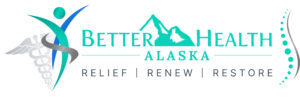How Much Does a Chiropractor Cost Without Insurance?
by
- Dr. Brent Wells

Without insurance, you can expect to pay somewhere between $100 and $150 for a chiropractic visit. While this is the average range, it is possible to pay as little as $60 in some places or as high as $200 in others. These are extreme cases, though. These prices generally cover a full exam and adjustments.
Average Cost Without Insurance: $125
Average Range: $100 to $150
Maximum: $200
Minimum: $60
Most people have been here at one time or another in their lives; you need a checkup or you need to see a chiropractor, but you have no health insurance. Or you might have health insurance, but it won’t cover chiropractic treatment or physical therapy-type treatments. Or maybe your deductible is very high.
What should you do if you don’t have insurance?
While the debate about health insurance and the single-payer plan goes on, you have real needs right now that need to be addressed.
We want to help you by offering some tips and advice about what you can do when you find yourself without health insurance or minimal coverage insurance.
First, if you have health insurance but aren’t sure about what items and procedures are covered and what isn’t, we want to explain a few things to make this process easier.
Do chiropractors take insurance?
Yes, chiropractors take insurance and the vast majority of insurance plans cover chiropractic care. However, there may be limitations. Some plans don’t cover things like x-rays, physical therapy exercises, or evaluation services.
How much does insurance cover for chiropractic care? It all depends on the type of plan you have and with which insurance company. Most plans offer full or partial coverage for chiropractic care.
How much is chiropractic massage without insurance?
If a doctor of chiropractic recommends chiropractic massage, you can expect to spend somewhere between $30 and $70 dollars for the visit. Of course, this depends on several factors, not the least of which is what you paid initially for the consultation. Sometimes the cost of a chiropractic massage will be included and done the same day. Other times you will need to come back for another session and pay again.
Considering that regular massage costs about the same, people find that it’s worth the price for the expertise of a trained chiropractic massage therapist.
How much does a spinal decompression cost without insurance?
Spinal decompression is a process that helps relieve pressure on the spine that may be causing a pinched nerve, a herniated disc, or other problems. Most chiropractors estimate that the treatment takes an average of 20 sessions, but it ultimately depends on the severity of the issue.
The cost of spinal decompression without insurance is between $50 and $250 per session. Unfortunately, the costs vary widely due to several factors including geography, the severity of the compression, and even the specific chiropractor you go to.
How much does chiropractic rehabilitation therapy cost without insurance?
Many chiropractors offer several different kinds of physical rehabilitation therapies. They do this to offer their patients the widest range of non-invasive options for pain relief, muscle strengthening, relaxation, and increasing overall health. We’ve listed several modalities and their approximate costs below.
- Electrical Muscle Stimulation – Using a TENS machine, this therapy is used to relieve muscle spasms, reduce inflammation, and relieve pain. It ranges from $20 to $180 per session in most places. On average, you’re looking at somewhere between $30 and $60 per session.
- Ultrasound Therapy – Some chiropractors use ultrasound therapy to help reduce inflammation, relax muscles, and stimulate circulation. This safe form of therapy utilizes ultrasonic waves to help facilitate pain relief and healing. On average, prices range from $15 to $35 per session. It’s generally an add-on to a regular session and may need to be repeated over the course of the treatment.
- Cold Laser Therapy – Cold laser therapy has many uses. Chiropractors use these low-light lasers to help joints and muscles heal, reduce inflammation, improve joint function, and reduce pain. There are many different types of laser setups, which makes their cost vary widely. However, cold laser therapy is available for as low as $50 a session in some parts of the country, and as high as several hundred dollars in other parts.
One of the best things about chiropractic care is that you don’t need a referral! Some people think that you need to see your own medical physician for a referral to a chiropractor for chiropractic care. To see a physical therapist or massage therapist, you will need a referral for physical therapy treatments or massage therapy in most cases, but chiropractors are primary care physicians and can order any test needed, and no referral is necessary.
You might also be surprised to discover that chiropractors’ cost out of pocket is far lower than you might think.
Chiropractic is covered for active-duty members of the armed forces and some veterans, but not all. You really need to take a look at your policy with a magnifying glass to find out all the details about what and who is covered.
If you purchased supplemental chiropractic insurance, even if another health insurance policy lapsed, you might still be covered by your supplemental plan.
Do chiropractors take Medicare?
Medicare covers chiropractic care for spinal subluxations. Your doctor of chiropractic must diagnose you with a spinal subluxation in order for Medicare to cover the course of treatment. This may sound limiting, but the number of issues that fall under the umbrella term of a spinal subluxation is wide-ranging. Most back issues are the result of some form of spinal subluxation. So, if you have Medicare, it’s absolutely worth seeing a doctor of chiropractic for a diagnosis.
Does United Healthcare cover chiropractic?
Yes, most United Healthcare policies cover chiropractic care. In fact, 2019 saw United Healthcare roll out new benefits for those with acute lower back pain. This expanded many people’s coverage to include low to no out-of-pocket costs for seeing a chiropractor. The move is meant to reduce invasive surgeries and lower the instances of opioid addiction among those with back pain since chiropractic care has shown great results in actually treating back pain instead of masking it with medications.
If you do have insurance but aren’t sure if you are covered or exactly what it will cover, let our staff help you in this area. If you need chiropractic care in Alaska specifically– you can call us anytime or fill out this form and someone will respond promptly with all the details of your plan.
This no-charge service means no obligation and can save you hours of time and headaches trying to figure out what your insurance might cover. And if you still have questions, one of our friendly medical billing specialists or patient care coordinators can help sort things out for you.
How Much Does a Chiropractic Adjustment Cost without Insurance?
On average, a fair estimate would be $100-$150 for a full exam and adjustments. If you have any type of insurance, they will most likely cover most of it.
Chiropractors are trained to deal with insurance companies and chances are that they know what your plan covers related to accessing the services of a chiropractor – which are very similar to the same coverage in most states.
If you don’t have insurance, you might be googling “Cheap Chiropractor Near Me” right now. However, be aware that when it comes to your health, the cheapest isn’t always the best. Be certain to check ratings and reviews before you decide to go with the cheapest alternative you can find.
Finding a Chiropractic Care Covered by Insurance in Anchorage
Finding a chiropractor who accepts your insurance is easier said than done. Navigating an insurance company’s coverage can be confusing, to say the least. We know how this goes. This is why our Anchorage chiropractor offers to handle your insurance company directly. Even if you’re not a patient, we’ll help you determine which of our services are covered by your insurance. For help with your insurance and chiropractic care, call us today.
10 Tips for Those Without Insurance

Tip #1: Your Health Is an Investment, Not an Expense
If you don’t read any other tips, this is the one you should hold on to.
Too many people today think of their health as an expense that should be done as cheaply as possible. This isn’t to suggest that you should only pay for the most expensive doctor or healthcare that you can buy, but to simply ignore issues or to “wait until later”, is a huge mistake.
Everyone has their priorities, but, let’s look at the facts. A great many people in society have no problem spending thousands on designer handbags, clothing, or car but aren’t interested in spending more than a few dollars, if any, on their own health.
Don’t get us wrong, a nice car is a great perk and will make you feel good for a while, but those good feelings will be just a memory if you can’t drive it because your neck hurts so much you can’t turn your head.
Taking care of your health is a real investment in the future. Imagine if someone told you that if you were willing to spend $100 today on your health, that you would avoid $10,000 worth of health problems in the future, what would you say? We are betting that you would say yes and put down that $100 in a flash! Who wouldn’t?
This is exactly what you are doing when you start thinking about your health as an investment, rather than an expense. Gym memberships, fruits and vegetables, dental cleanings and chiropractic care are investments. Fast food, Starbucks, & video games, in most cases, are expenses.
Tip #2: Work with Your Health, Not Against It
When you don’t have insurance, you may worry that every sneeze may lead to pneumonia and every ache and pain might lead to a frightening disease.
That makes taking care of yourself more important than ever since you will probably only be seeing your chiropractor or doctor when you need to as opposed to when you want to.
You can be your own best friend in this area. Invest in your own health by working with it, rather than against it. This means:
- Quitting smoking
- Limiting alcohol consumption
- Getting regular exercise
- Limiting stress
- Learning to deal with stress you can’t remove from your life
- Staying hydrated
- Eating a healthy, anti-inflammatory diet
- Practicing good posture
- Get quality sleep
- Take care of your teeth
- Get annual checkups from your GP and your chiropractor
- Wear seatbelts and helmets
If you think that taking care of your health is expensive, it is a drop in the bucket when you consider the cost of getting sick or being injured.
Bonus Tip: Finding the Best Chiropractic Care With or Without Insurance in Juneau
With recent changes in healthcare law, more and more people will be covered by their insurance for chiropractic care. However, it’s still hard to tell what your insurance covers and what it doesn’t — unless you want to spend hours researching.
Luckily, whether you have insurance or not, we can help you determine the level of care that you can afford. Call our chiropractor in Juneau’s office at (907) 796-3333 today so we can help you get on the road to Better Health Juneau.
Tip #3: Avoid Common Viruses
It’s the little things that count. No matter how healthy you are, you can still catch a virus that can be devastating to your health.
According to Forbes, these everyday illnesses cost US companies as much as $576 billion in lost productivity every single year.
Avoid becoming part of this statistic and take steps to prevent becoming a “virus victim” by following good health procedures including:
- Getting an annual flu shot
- Getting the pneumonia vaccination
- Washing hands frequently
- Don’t go to work sick or go to public places unless necessary
- Avoid people who are obviously sick
- Use hand sanitizers
The flu kills between 12,000 and 56,000 people every single year and sends about 700,000 persons to the hospital. It also can have lingering ill health effects for weeks afterward.
Some people develop pneumonia just a few days after they think that they are “finished” with the flu. Be aware of your body and always take good care of yourself, especially in the first few days after you believe you have recovered from a bout with the flu.
Viruses live everywhere and despite having no legs, they seem to travel everywhere with ease. Sanitize everything and don’t be concerned if someone makes a joke about Howard Hughes. You will have the last laugh when you are the last person in the office who didn’t get the flu this year.
Tip #4: Don’t Neglect Your Mental Health
While many people view the mind and body as two separate entities, more and more research shows that your mental health has a definite effect on your physical health.
Studies have found that those who have mental health issues, such as depression, have shorter lives than those who do not. Studies have also found that those with unaddressed mental health issues have an increased risk of developing heart disease and respiratory issues.
Almost all states or counties have free or sliding scale rates for addressing mental health issues. You can also check the Health Resources and Services Administration (HRSA) to find clinics that can help you find the right facility, at a reduced price, so you get the help you need.
No one knows how you feel, what you are thinking, or what is going on in your life unless you tell them. Keeping problems to yourself is rarely a good idea. Everyone needs someone at some point in their lives. Don’t be afraid to talk about your needs.
If you believe that you need to address your mental health issues, don’t wait for the “right” time to get help. The right time is today.
Tip #5: Explain and Ask

If you don’t have health insurance, you aren’t alone. Even the Affordable Care Act left some people out in the cold and for some, it has added 50% more cost to most people’s plans, and in some cases, doubled or even tripled their costs.
If you have no health insurance and need to see a doctor, there are free clinics in almost every large city. If there isn’t one near you, find a walk-in clinic or urgent care facility and explain your situation.
Whether you are paying cash or using a credit card, ask for a discount. Most medical doctors, chiropractors, and physical therapists offer a discount to patients paying cash, or with no insurance. Some may offer 10, 20, or even 30% discounts.
Most clinics will try to help you in every possible way. Don’t assume you just have to live with a problem, help is available.
Tip #6: Consider Alternatives
For some health issues, you can do more with less. For example, if you suffer from high blood pressure, rather than wondering how you will pay for regular doctor visits, blood pressure medication, and the costs of other tests, what if you were to try the alternative? That would mean eating a healthier diet, cutting back on salt, getting lots of exercises, and losing weight if you need to.
You would be surprised at the number of health issues that can be solved when we first try alternative methods, rather than jump directly to medication and testing.
Many Type 2 diabetics have been able to stop insulin shots or reduce their medication, simply by changing their diet and exercise habits.
This won’t be a solution for everyone, of course, but if you are suffering from a medical condition that might be “solved” or even made less severe by practicing the alternatives, speak to your doctor or your chiropractor. You have nothing to lose by trying the alternative and so very much to gain.
Tip #7: Check Your Attitude
Believe it or not, like mental health, your attitude plays a huge part in your health. Numerous studies show that your attitude can determine the outcome of a health issue.
If you believe that you will never be “OK” (or healthy) because you don’t have health insurance if you believe that you can’t control what happens to your body if you think that your free clinic doctor isn’t as good as a “regular” doctor so you will take forever to heal….you are right. Studies show that people with negative thinking had longer healing times and a worse prognosis than those with a positive attitude.
Recover more quickly from any injuries or health issues you might have by thinking positively about the treatment you are receiving and how well you are responding to it.
Write some positive affirmations and tape them somewhere that you will see frequently. Say one or two of them every time you see the list. Some great affirmations include:
- I am getting healthier every day
- I am perfectly healthy
- Every day is full of happiness and health
- My body is a healing machine
- Good health is my birthright
- I have a healthy mind and body
- I feel good, I look good, and life is good
- My immune system keeps me healthy
In other words, put on that positive thinking cap. It takes the same amount of energy to think positively as it does to think negatively. You have zero to lose.
Tip #8: What about Prescriptions?

If you need prescription medication and find that you can’t afford it, there are several things you might try.
- Many generic drug programs are available that charge only $4 for a 30-day prescription. Some location’s that offer this program include Target, WalMart, Kroger, and Safeway.
- RXAssistance.org is operated by pharmaceutical companies. They provide free medication to those who cannot afford some drugs. See if you qualify.
- RXhope.com is another company that offers deeply discounted drugs for those in need.
- Check with the drug manufacturer, such as Merck or Pfizer. Many companies offer patient assistance programs for those with no health insurance.
- Ask your doctor for samples
- Check prices online. Ordering medication from Canada is often cheaper than US pharmacies.
Don’t go without your medication! Chances are that you can find a way to get your needs met.
Tip #9: Check with Medicaid
If you haven’t done so already or if it has been a while since you last checked, see if you qualify for Medicaid. Eligibility is determined by your income and size of your household and the numbers seem to change with every season or political whim.
You don’t have to wait for an enrollment period or the beginning of the year to see if you qualify, so go to your state’s Medicaid website and get started! You won’t know until you try!
If you are wondering whether a chiropractor can give you time off work, find out the answer here.
Tip #10: See Your Chiropractor

You might be wondering what a chiropractor costs and whether you can afford to see one. No one likes the idea of paying out of pocket and we at Better Health Chiropractic & Physical Rehab know that people have lots of expenses to consider.
We offer a discount for cash patients as well as a variety of payment plans that can help make things easier for you. Some of the options we offer include:
- No payments for 6 and even up to 18 months for some treatment programs
- Extended financing plans for almost every budget
- Financial hardship plans
- Easy payment plans
Don’t live your life in pain because you don’t have insurance. We understand that life happens when you are making other plans and won’t judge you based on your lack of insurance or ability to pay. If you have no insurance, we can help. Call us at Better Health Alaska for a same-day appointment with our top-rated chiropractors and let’s discuss your situation.
Take charge of your health and come see us today.
Featured Posts
9 Key Differences Between a Herniated Disc and a Pinched Nerve
7 Self-Care Tips for Cervical Radiculopathy
Chiropractic Treatment Techniques for Degenerative Disc Disease
How to Treat Burning Knee Pain Naturally?
Bulging C5-C6 Disc Symptoms: More Than Just Neck Pain
Beneficial Effects of Walking on Sciatica
NEWSLETTER SIGN-UP
Sign up now!



